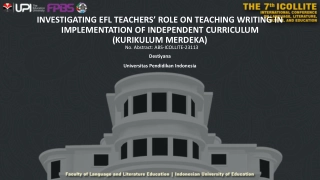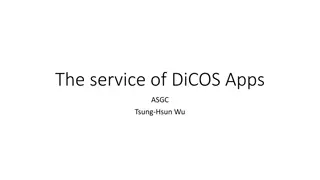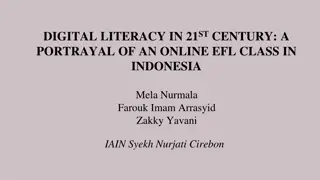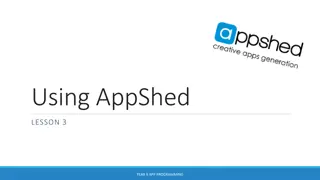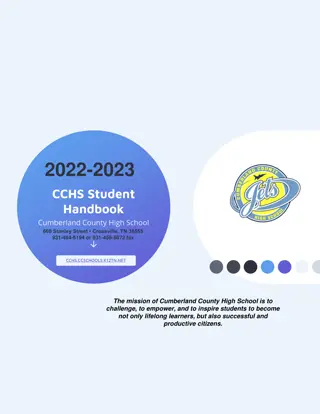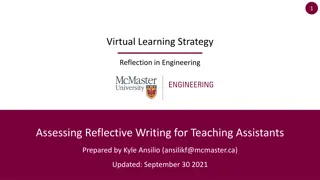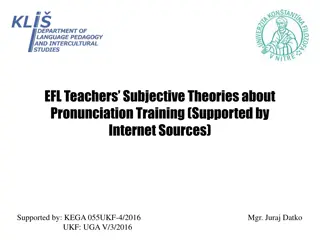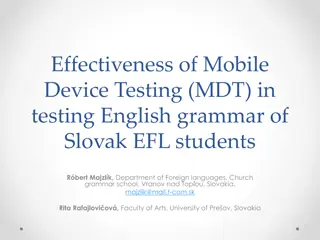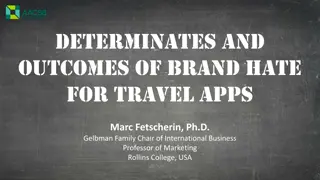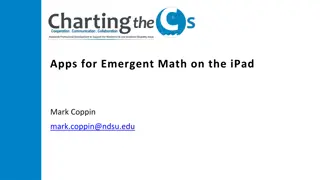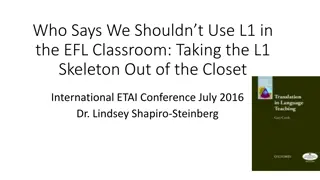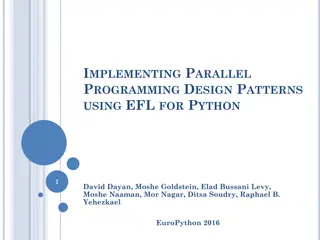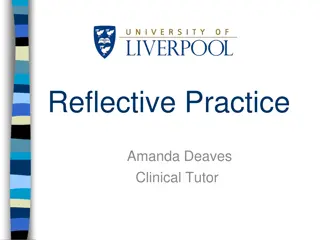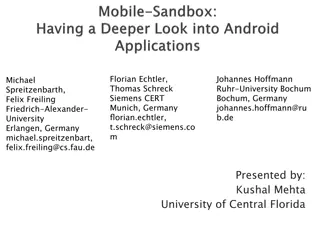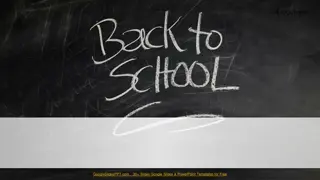High School Students' Reflection on Free EFL Self-Learning Apps
High school students' reflection on the use of free applications for EFL self-learning involved a two-phase selection process by researchers and teachers. The study focused on carefully selecting mobile apps to support English writing skills. The chosen apps were introduced to students for a 14-day trial period, during which their reflections were collected and analyzed using a qualitative approach.
Download Presentation

Please find below an Image/Link to download the presentation.
The content on the website is provided AS IS for your information and personal use only. It may not be sold, licensed, or shared on other websites without obtaining consent from the author. Download presentation by click this link. If you encounter any issues during the download, it is possible that the publisher has removed the file from their server.
E N D
Presentation Transcript
HIGH SCHOOL STUDENTS REFLECTION TOWARD FREE APPLICATIONS FOR EFL SELF-LEARNING Ani Susanti Ali Tarmuji Universitas Ahmad Dahlan
INTRODUCTION Smart Phones Communication Fun and Education Hundreds Apps growing
Huge Number of Apps Careful Selections Confusing
APPS SELECTION METHODS The procedure was modified from Weng and Chen (2015). 1. The first phase was the selection of the mobile applications by the researchers and small group of English teachers. 2. The second phase was the use of the chosen application by high school students.
FIRST PHASE SELECTION In the first phase (conducted on mid of July 2016), the researchers opened google play and typed learning English writing . There were hundreds of apps appear, so the researchers limit to only 150 apps for further selection. The next selection was based on several criteria: - used more than 100.000 users, got comment rating 4.5 5.0, under the category of Education, using English, and got positive reviews.
FIRST PHASE SELECTION The next selection was conducted by small group of teachers and students (5 English teachers and 5 first year university students). This group of teachers and students observed the selected mobile applications, and then chose the most appropriate mobile apps for high school students with two main considerations: whether the apps would attract (motivate) high school students? Whether the apps suitable to support EFL writing?
SECOND PHASE SELECTION The second phase involved 35 senior high school students who join the study voluntary. The researchers introduced the chosen mobile applications and required the students to use the applications 5 10 minutes every day during 14 days. The students write weekly journal to reflect their ideas about their practice using the chosen mobile applications. The students reflections were analyzed and interpreted using qualitative approach.
STUDENTS REFLECTION 16 participants use Duolingo 30 8 participants use Hello English participants use Elevate
SMALL CHUNKS AND STEP BY STEP The students take the advantage from the graded and step by step lessons. The students can start from the simplest to more difficult level. Chinnery (2006) reports that small chunks in mobile applications designed for language learning are effective to support students learning.
UNCONSCIOUS LEARNING Interesting and fun activities in the application may suit the students needs to learn while relax during their spare time. The killing time learning fosters to unconscious learning. Language learners who used their devices such as phones, tablets, electronic dictionaries, MP3 Players, and gaming devices to study autonomously improve their language skills (Kukulska-Hulme & Shield, 2008).
PRACTICALITY AND SIMPLICITY Can be used anywhere and anytime Off line mode Small byte size Smart phone power (battery and credits) Memory (storage) size Screen size Sa aleek (2014) summarizes that mobile technology effectively enhance the language skills due to the features such as accessibility, interactivity, immediacy, and permanency.
IMPROVE ENGLISH SKILLS More learning opportunities from the (guided) exercises. Integrated with other skills and knowledge. Do not support schools learning. Need teachers for non guided exercises and for clarifying some information.
CONCLUSION The students find these three chosen apps useful and worth for killing their spare times. Regular (routine/daily) use is more encourage to meet meaningful learning. The role of teacher is as motivator and additional resource (when needed). The role of peers is as sparing partner / collaborator.
ENDNOTE The authors are not affiliated to any of the commercially available applications discussed.
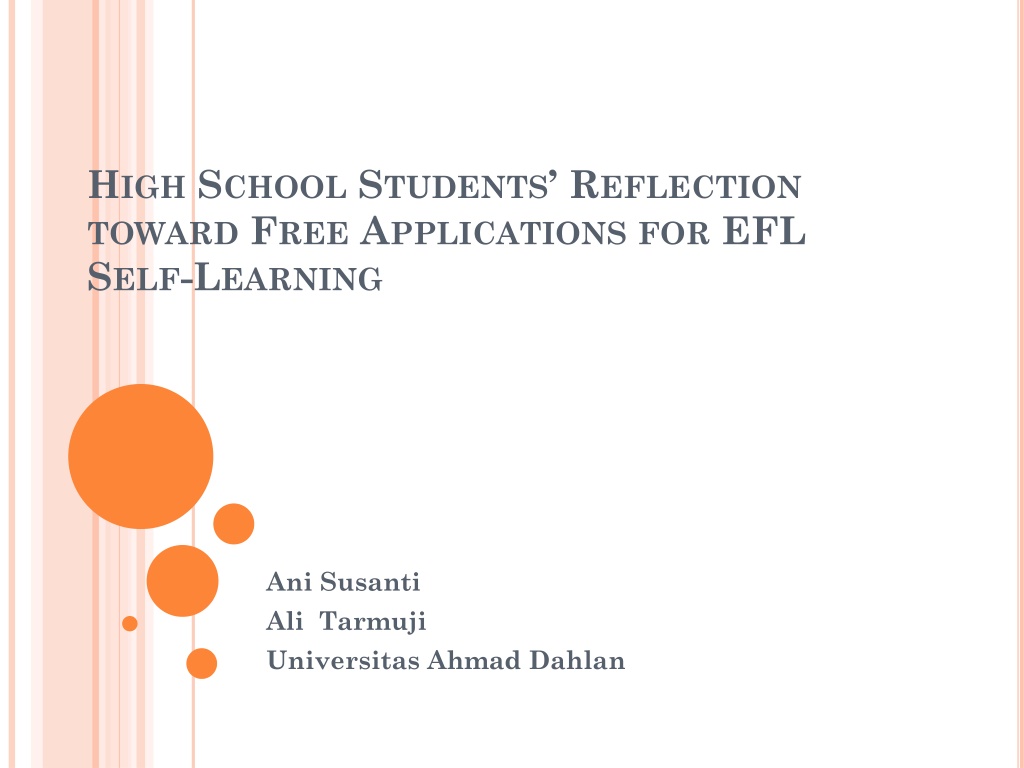
 undefined
undefined
















